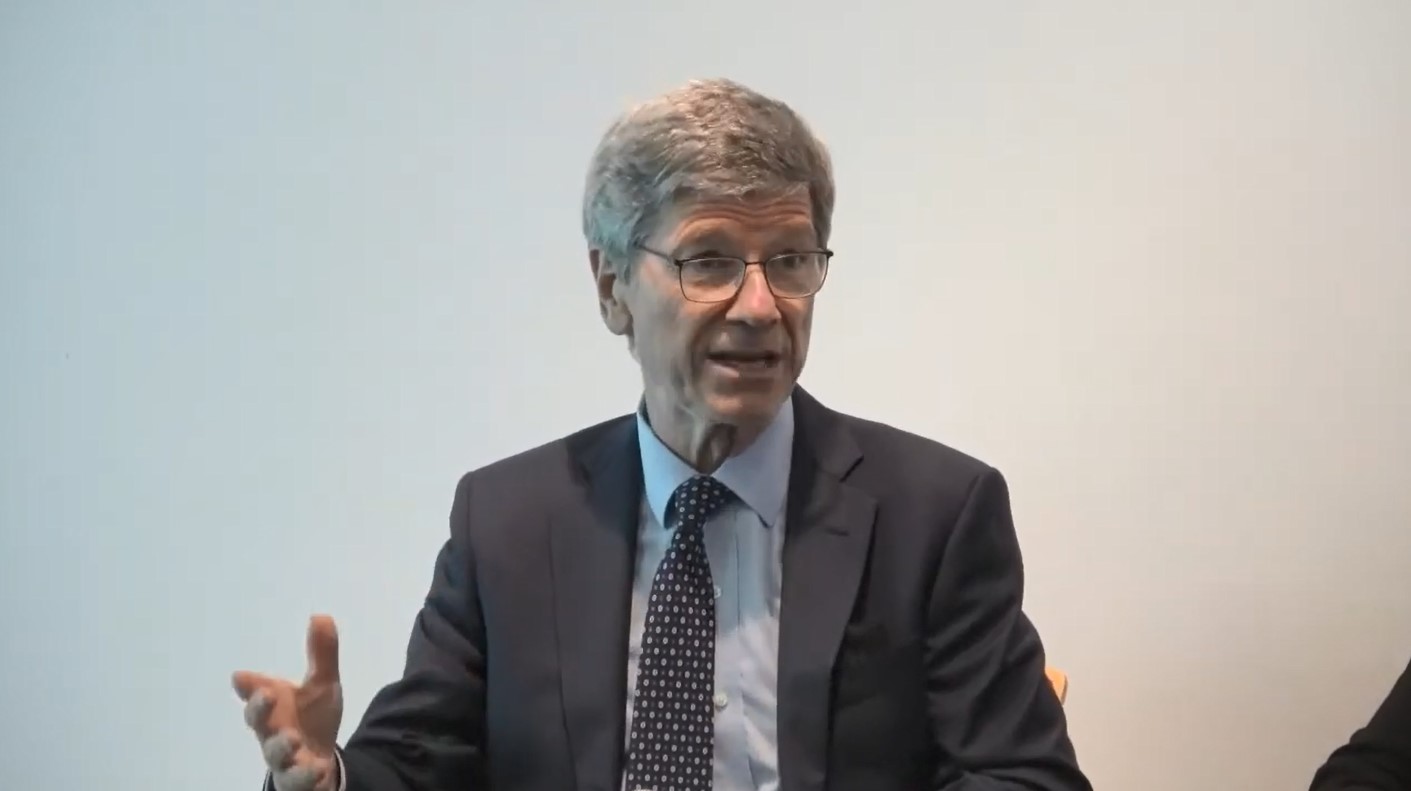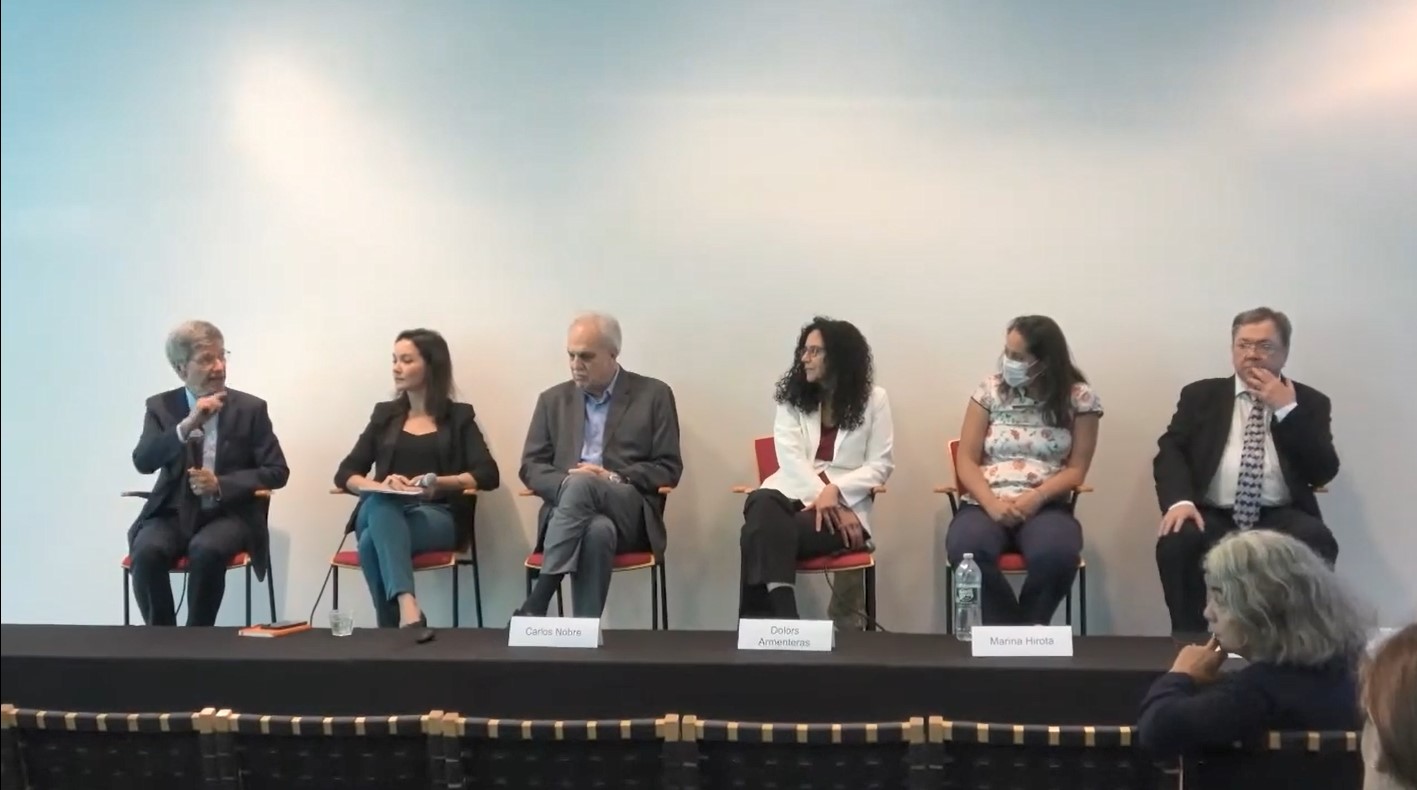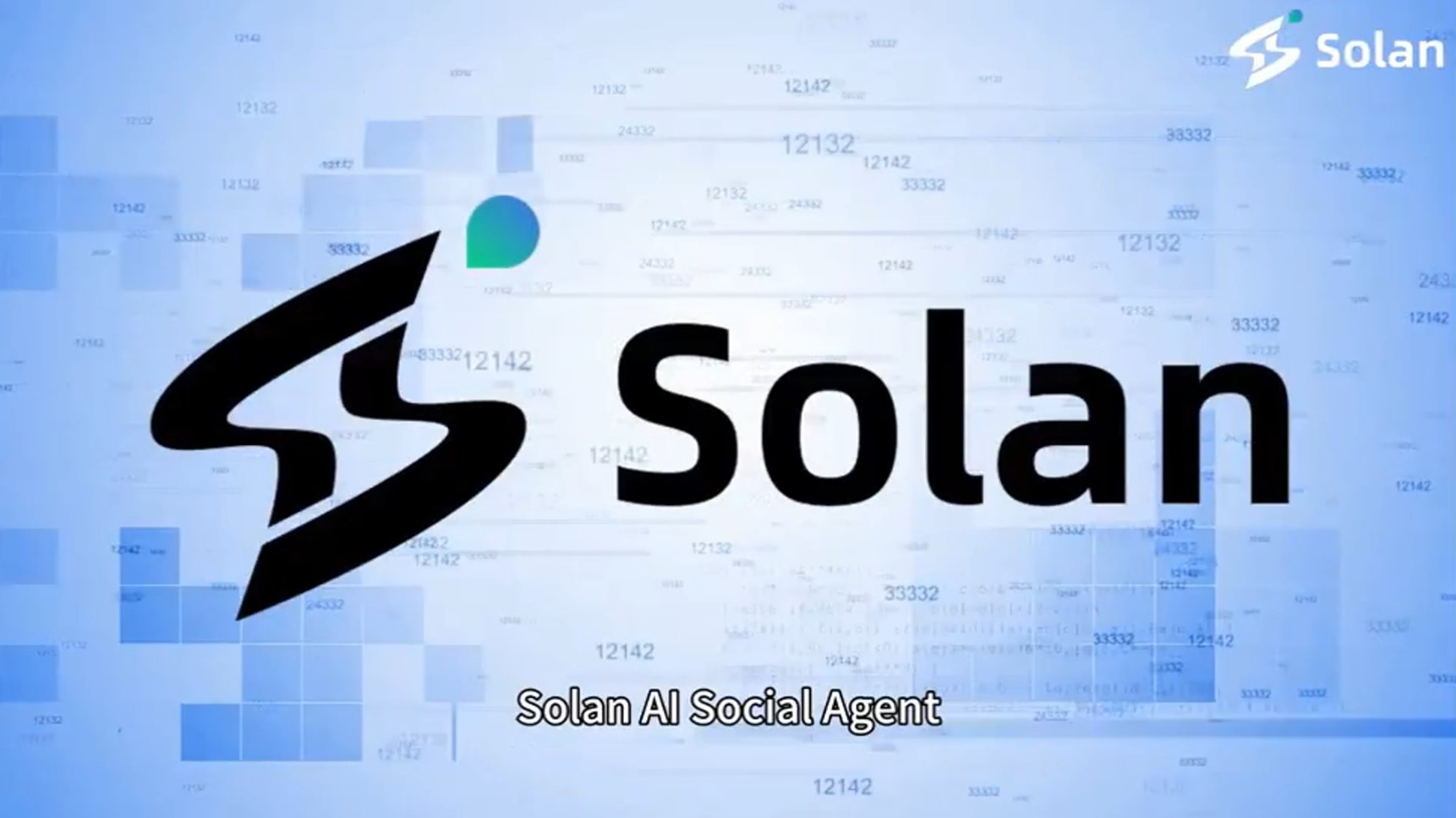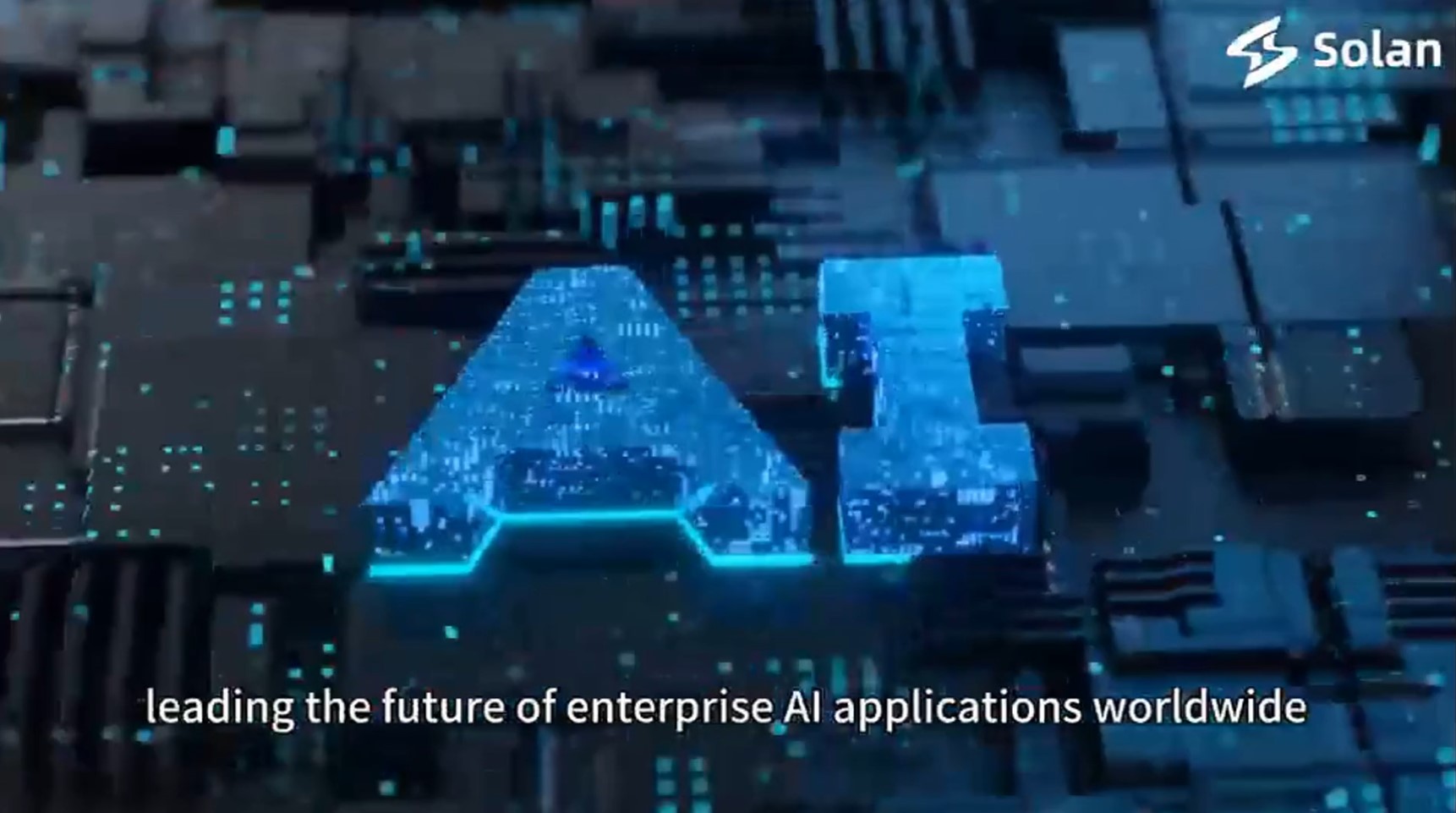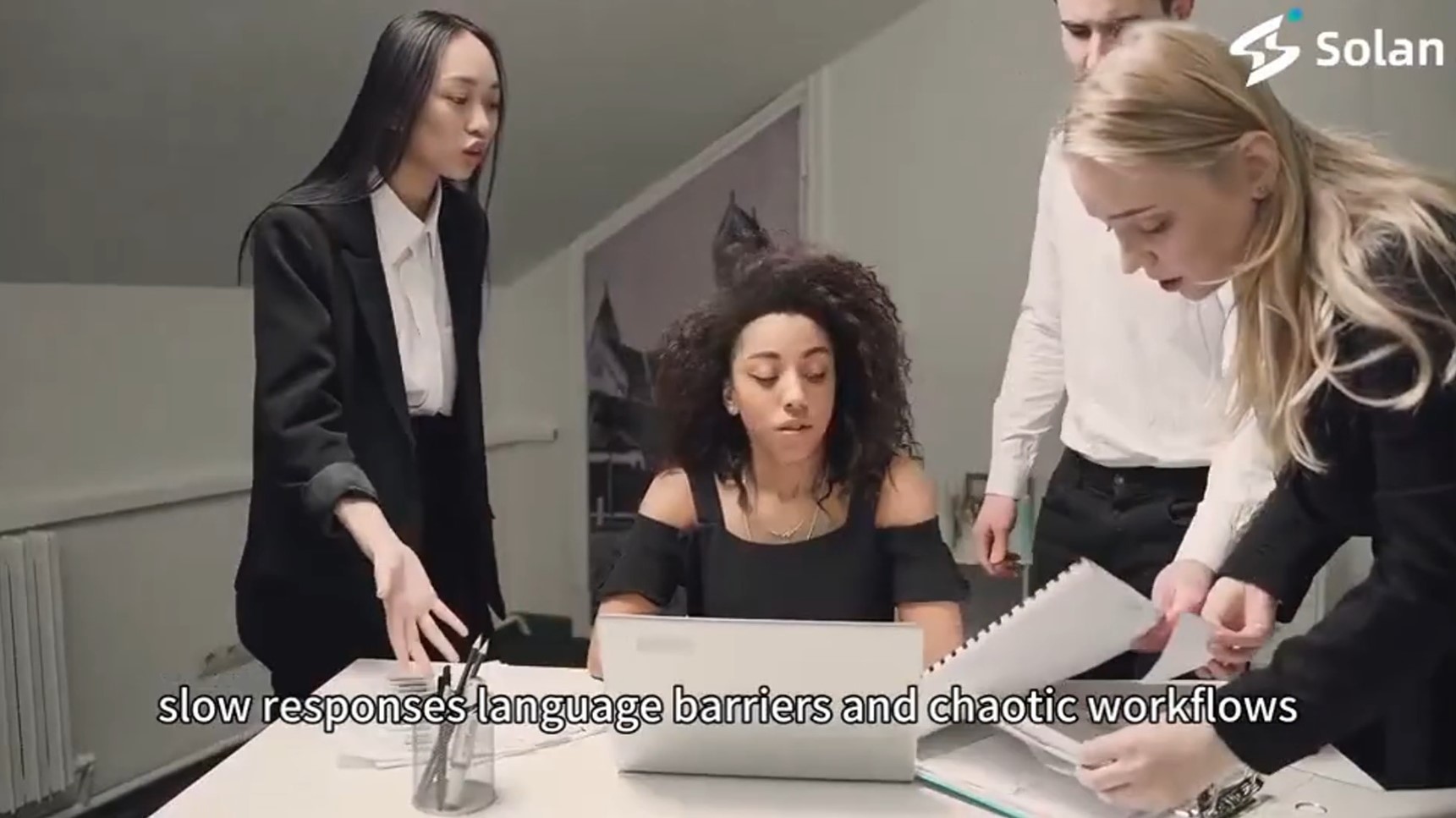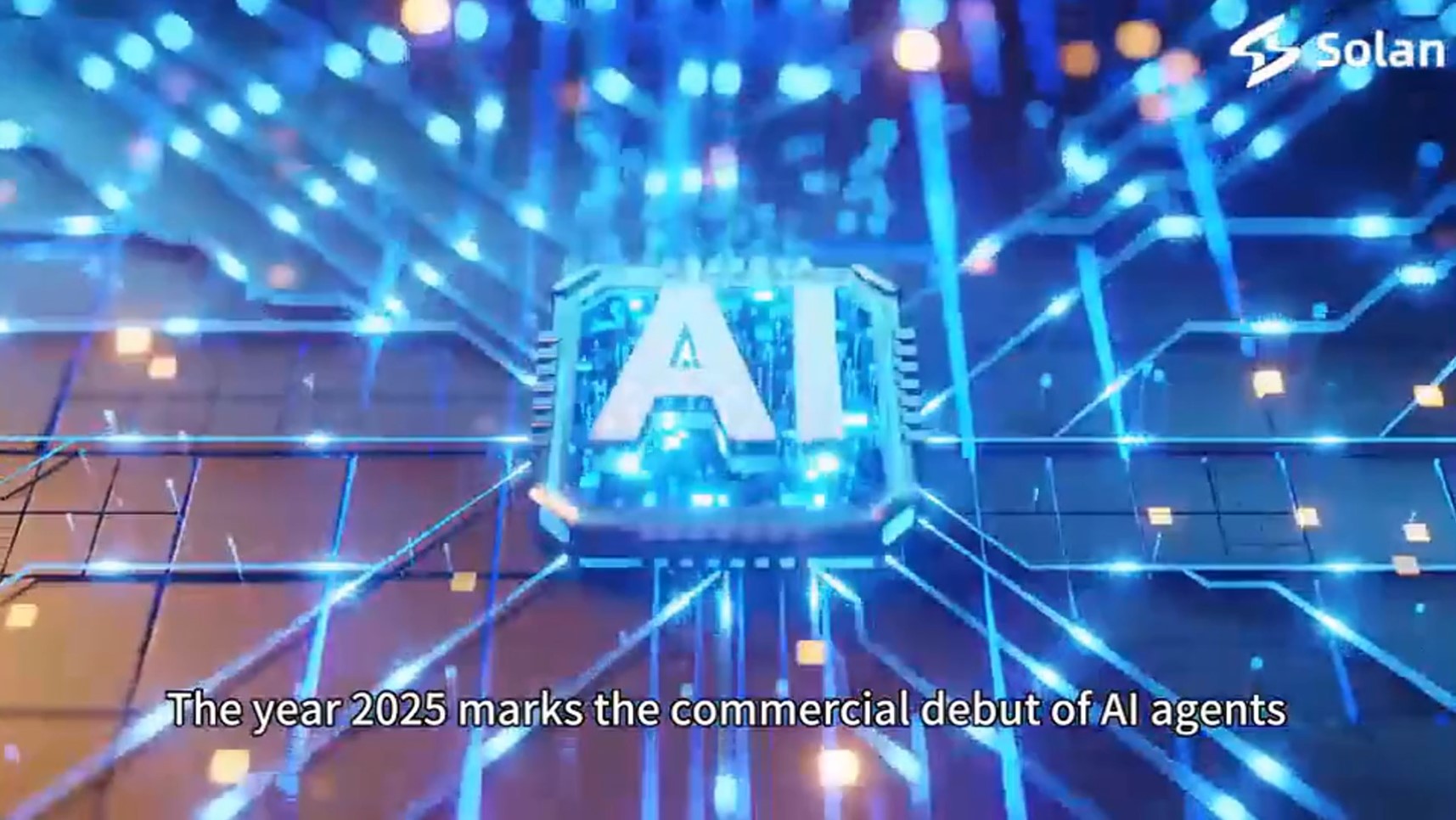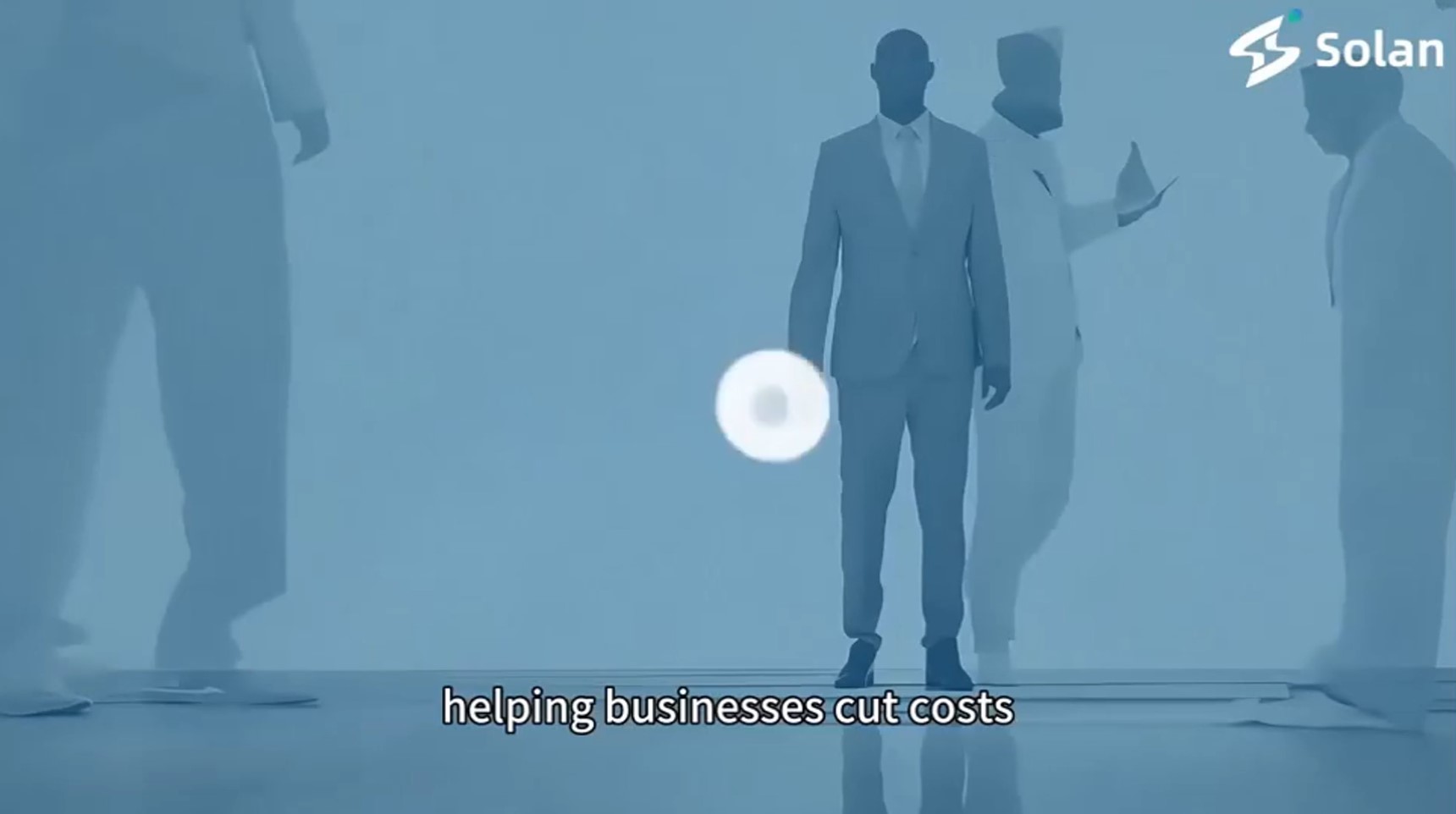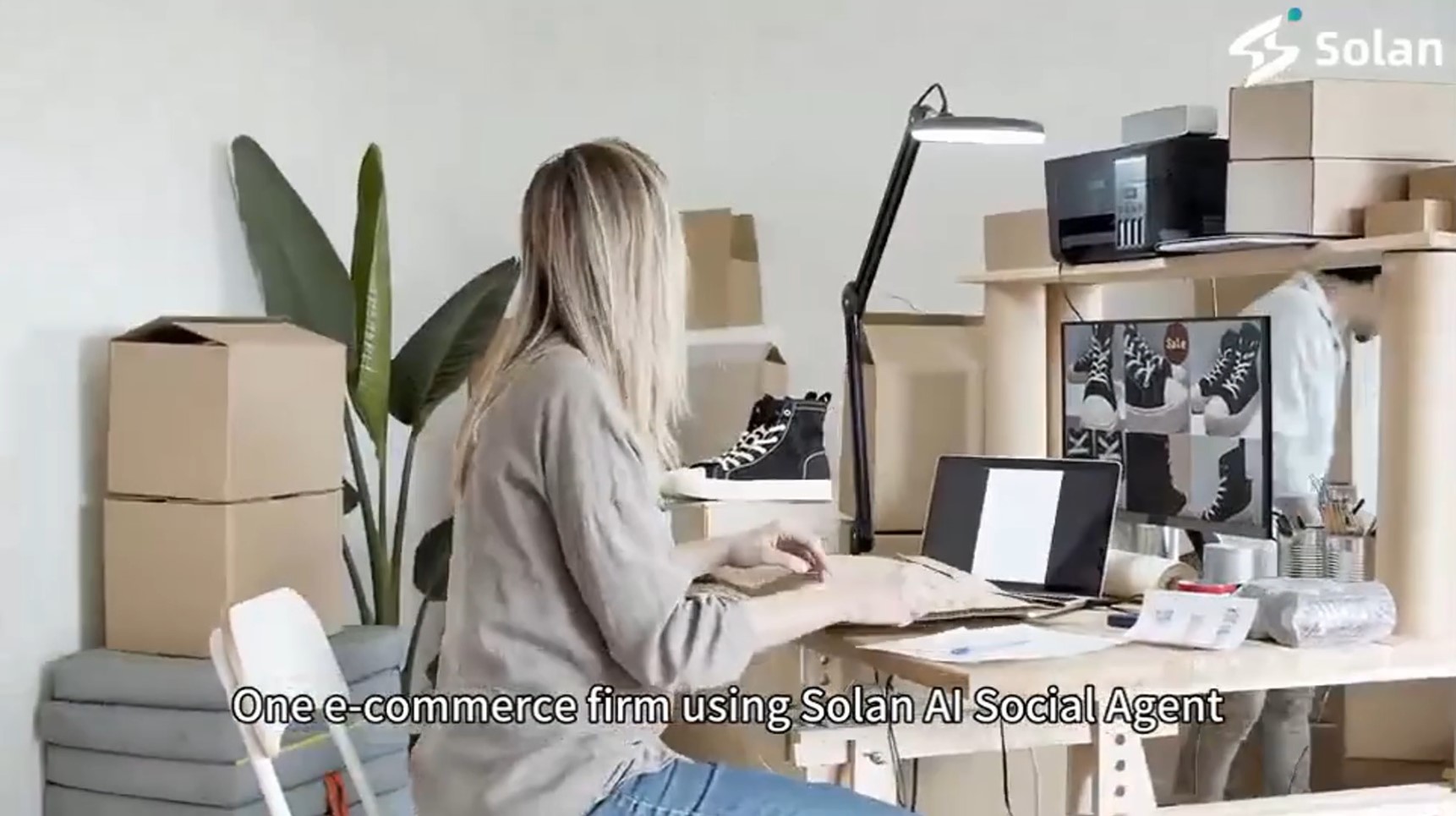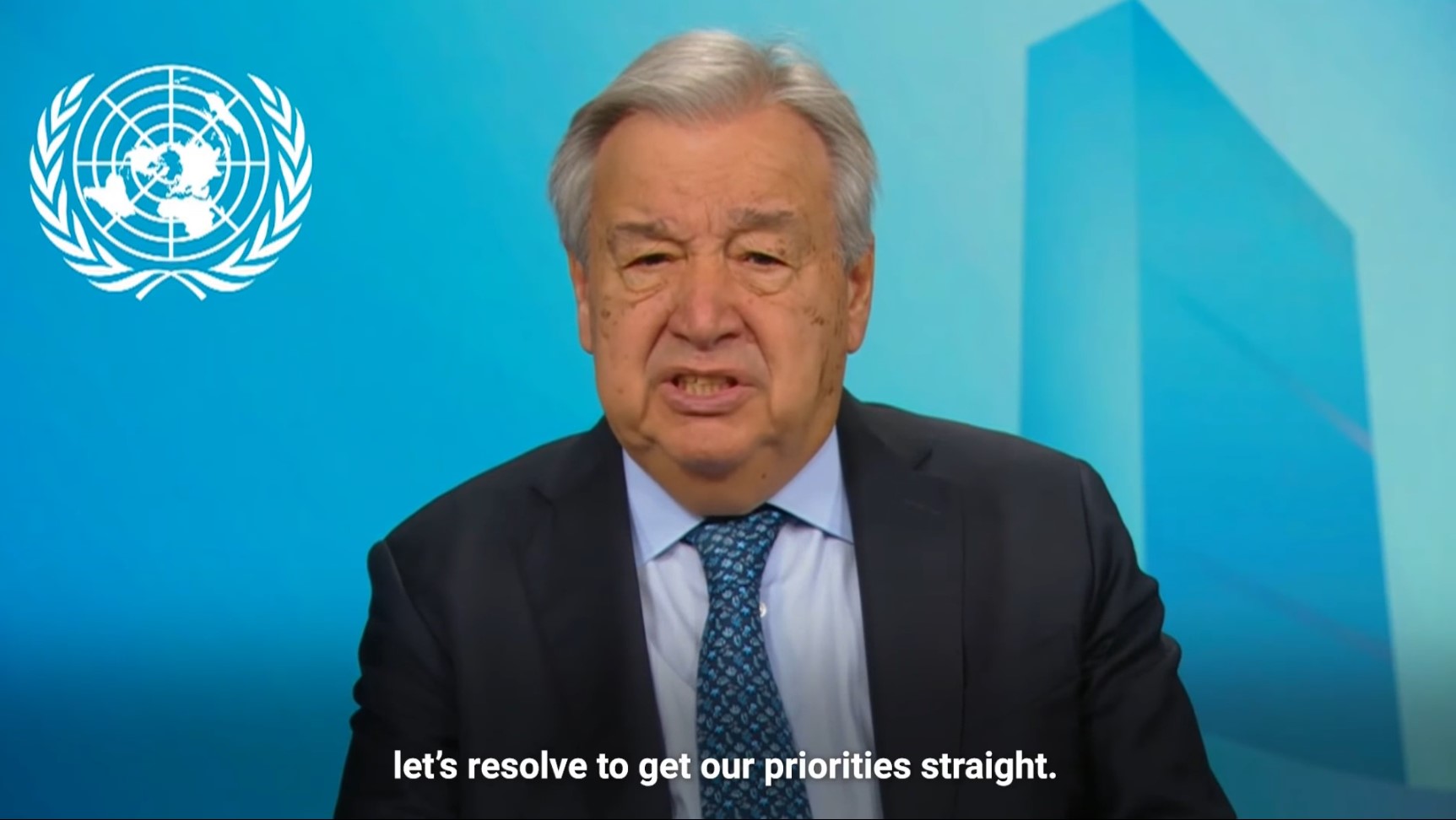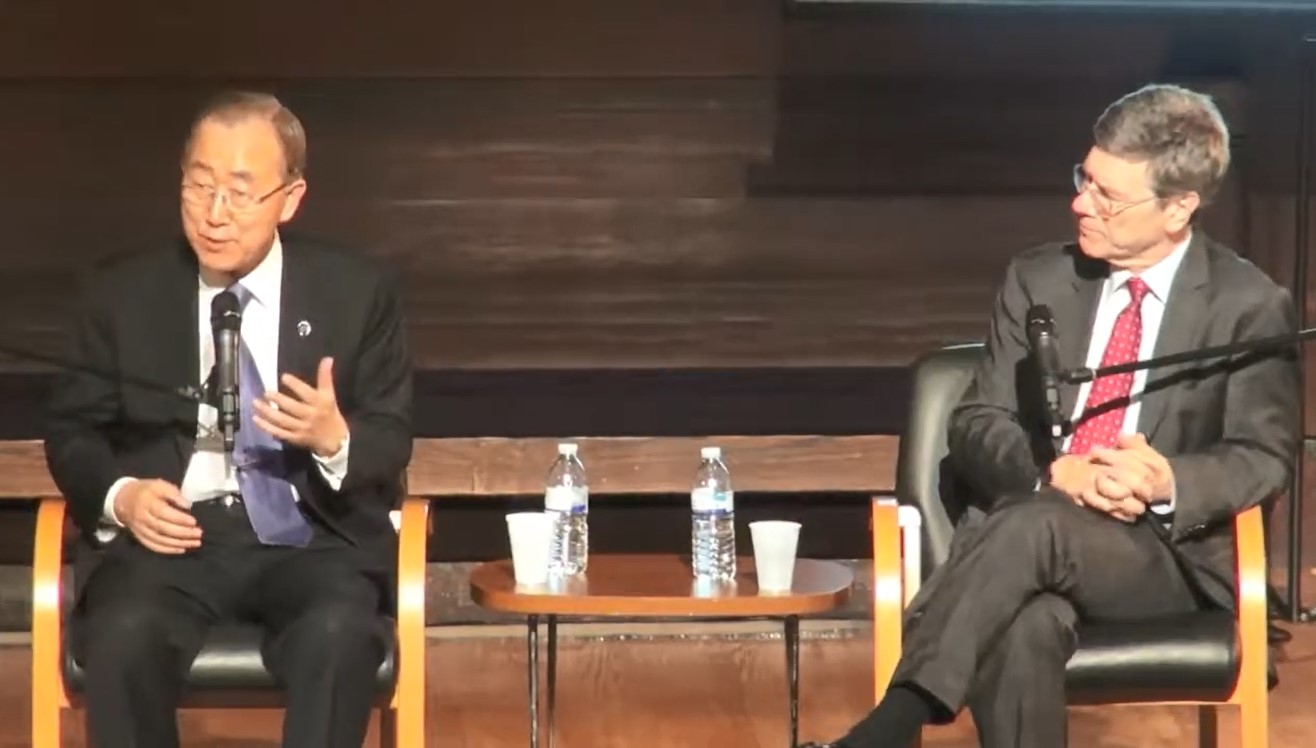
Celebrity Media Editor's Note: We are releasing this precious video material (historical record) because yesterday, we received an email from the renowned economist Professor Jeffrey Sachs containing an article he wrote, which we are specially reprinting. While reprinting this article, we have organized and edited our video archive material to share with the international community. This is because we maintain regular contact with Professor Jeffrey Sachs and this segment involves former Secretary-General Ban Ki-moon's speech upon his impending departure, which may not even be available in the United Nations archives.
Former Secretary-General Ban Ki-moon filled with trust and anticipation, said in the conversation: "As I prepare to retire from this job and hand over one of the world's most challenging roles to my successor, António {{to be replace}}, I believe you will give him strong support and collaborate even more closely with my successor and the United Nations than you did with me. Thank you very much."
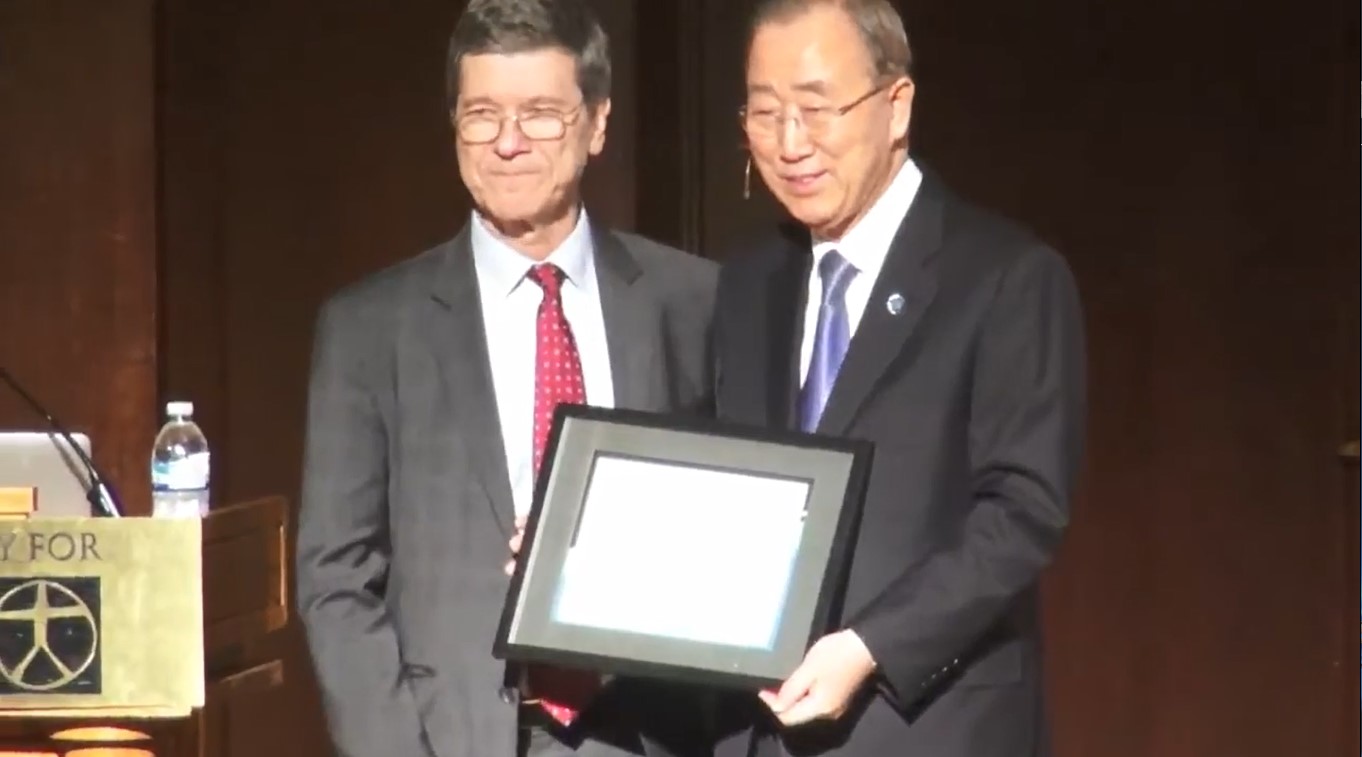
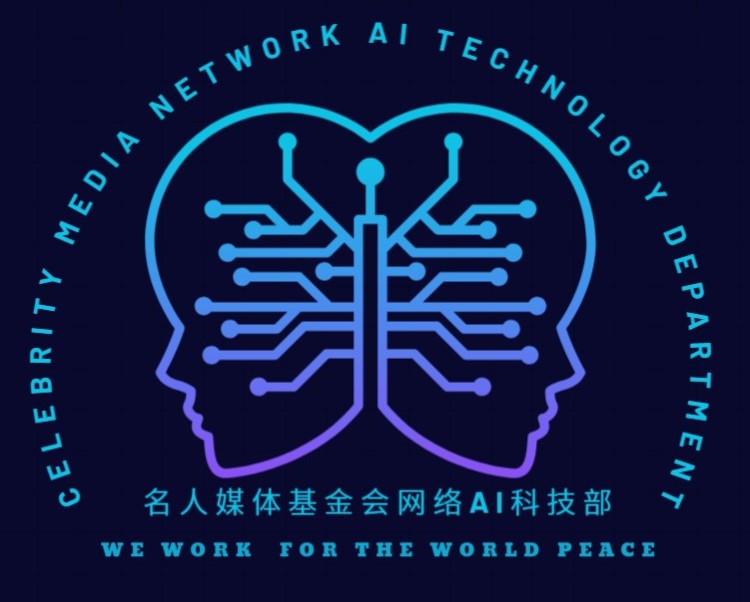
Our AI Network Technology Department has also specially arranged for the conversation to be translated into Chinese by a dialogue robot, hoping that the international community will work together to follow the United Nations Charter and contribute to the maintenance of world peace.
The following is the text of the conversation:
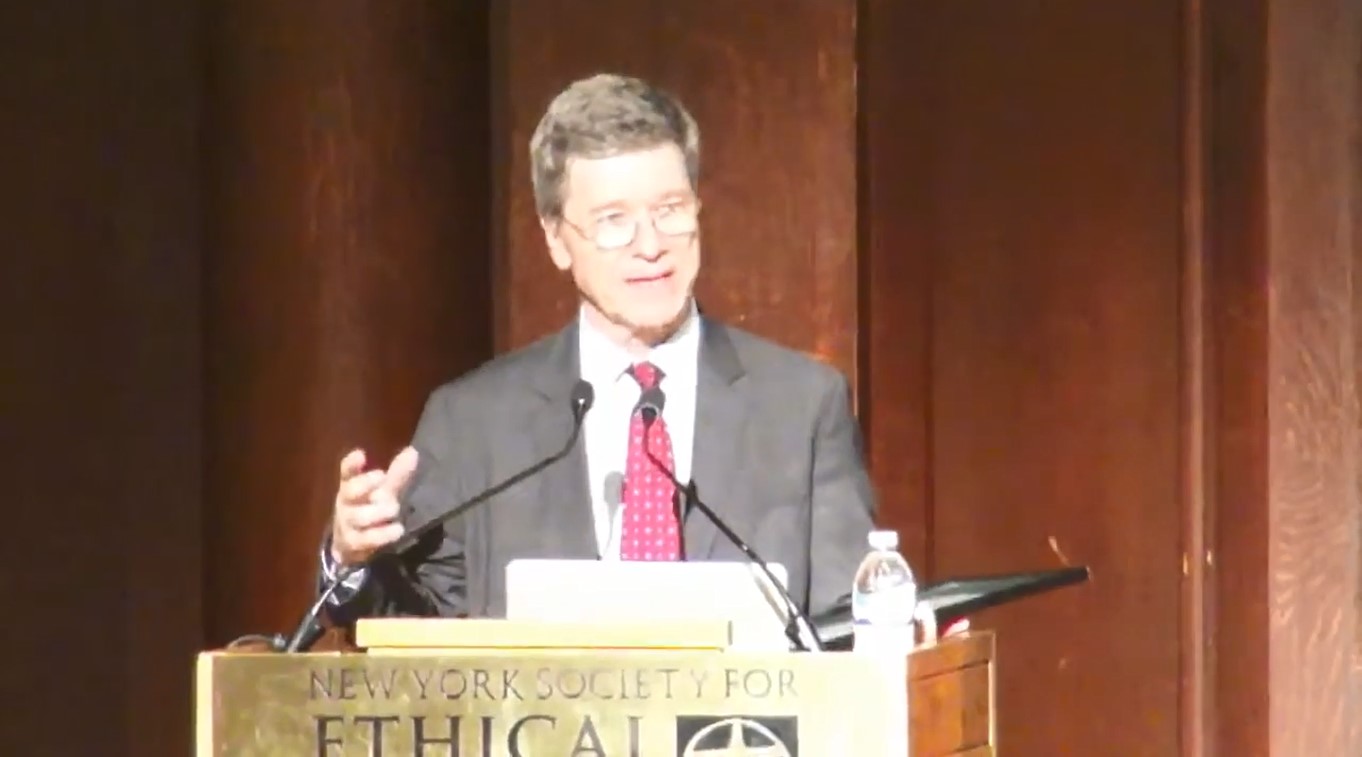
Professor Jeffrey Sachs:We had a wonderful friend in this process, one of the great leaders of our time together with the Secretary General who was a partner in all of this, and that is Pope Francis. Pope Francis and the Secretary General worked very closely in the last few years so that one could arrive at this kind of global understanding. You'll recall that last year Pope Francis issued a remarkable document, his encyclical, which is so remarkable you can assign it in a graduate class in Earth Sciences, or in theology, or in philosophy, or in global economy, and you'll be getting the clearest possible thinking in all of those dimensions.
One of the privileges that I had of watching the unfolding events was to watch Pope Francis and the Secretary General work together in the past year. It's no coincidence when they met in the Vatican and then when Pope Francis came the morning of September 25th, 2015, and opened that day with an address that led all of the world leaders to stand up and by acclamation adopt the sustainable development goals. Now in that context, our ethics and action program was born because in the work of the United Nations together with the Vatican and with religious leaders and scientific leaders that the Vatican brought from all fields and all over the world and all different religions, so this is across the board, across all religions and non-religious people, and scientists and artists, we found a wonderful wonderful deep relationship with the leadership of the church and especially with a unique organization called The Pontifical Academy of Sciences which has as its chair Chancellor Bishop Marcelo Sanchez Suro. Now that's a special organization, it was founded in 16003 and one of the founders was Galileo Galilee.
One of the inspirations for the church was the combination of faith and reason to solve our global problems, and in that context of the work in the leadup to the sustainable development goals and Pope Francis's inspiration, we had several meetings together with leadership of major religions and our friend William Venley, the executive Secretary General of religions for peace who brings together world religious leaders for peacemaking, gave the opportunity for us to deepen the notion of putting ethics like the universal Declaration of Human Rights that an mentioned and that is so wonderful that it's right in the entryway of this building, it's the perfect document as you walk in the building to put this into action and so ethics in action was born and had its first meeting at the Vatican last month and in that context we decided that ethics and action belongs in all parts of the world but where else but our home city and our beloved city of New York City. So tonight is also the first meeting of ethics and action for New York City.
I'm going to say a bit more about that in a moment but I've kept the Secretary General standing for a long time to explain that we are given our first ever Award of ethics and action conferred on Secretary General Bon Kimon for his unique and manifold contributions to the cause of sustainable development, peace, and human dignity and it's given on behalf of ethics and action for sustainable and integral development by Bishop Marcelo Sanchez Suro and I'm lucky to have my name on the document also Secretary.
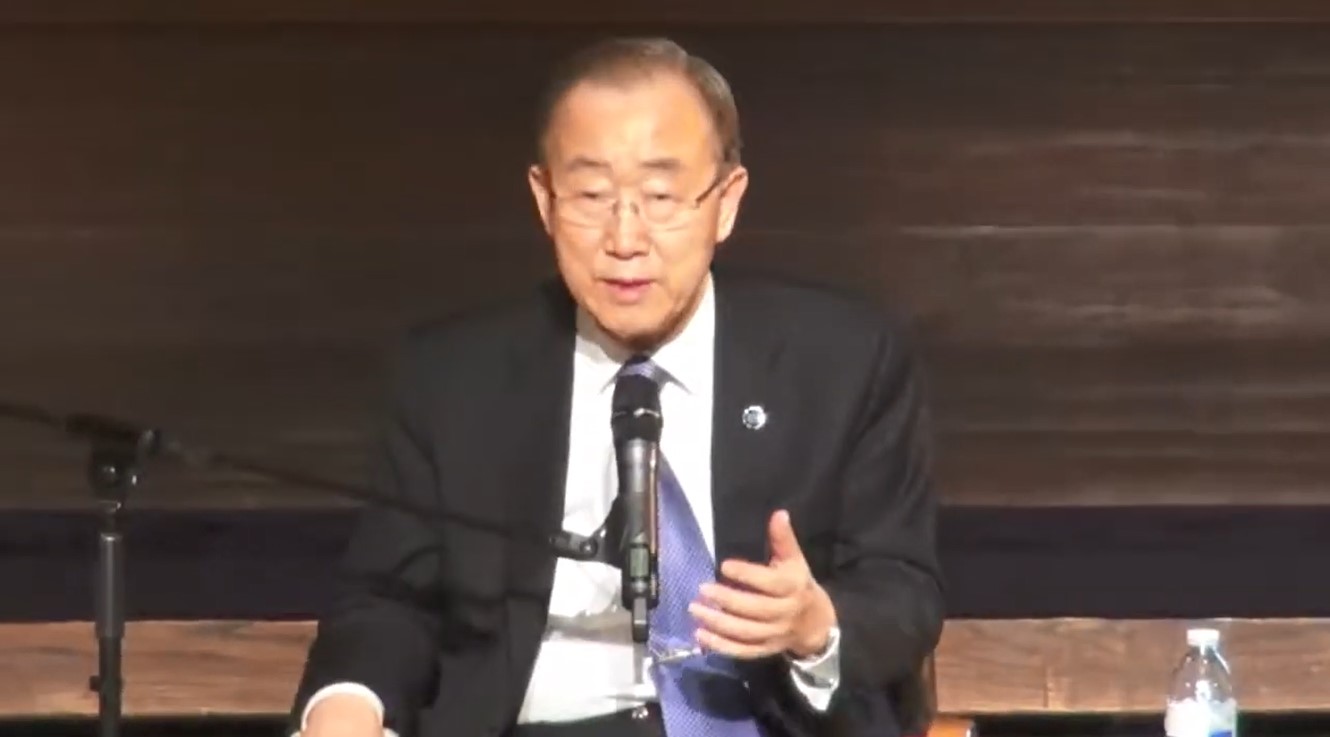
Secretary-General Ban Ki-moon:General, for the past decade, I have sought to strengthen the ethical dimensions of our work. This is especially important at this time of divisiveness when extremist groups and even many political leaders seem intent on pushing people into camps of "us and them" or "you and me." I have been urging leaders of the world, and you have seen what has been happening in Europe. Then please, do not erect wars. Let us build bridges between and among the people rather than erecting wars. This is not what political leaders should do. The 2030 agenda is not only our shared manifesto but also a platform for cooperation. The same is true of the Paris agreement. Together we can improve pro-lives and strengthen the ethical and other bonds tending all societies in a profoundly interdependent world. Ladies and gentlemen, thank you again for this recognition, and I am very much honored. As I prepare to retire from this job and hand over all this—one of the most impossible jobs—to my successor, Antonio, I trust you will give him strong support and will work with my successor even more closely as you have been doing with me and the United Nations. I thank you very much and even though I may soon be joining your group like Civil Society, the peace and security, human rights, and all sustainable development have already been embedded in my body, in my DNA, so I will work with you to make this world better, healthier, more prosperous, and more peaceful for everybody in the world. I thank you very much.
Thank you. I have been asking the Security Council all the time why I do not challenge about veto power; that's a charter provision, so I cannot change it unless you amend the charter of the United Nations. But whatever may happen, very seriously tragic things happen when the Security Council issues a statement. There are presidential statements, PR statements; all 15 member states have to agree without the exception of any country, so one country can block this decision, and then the Security Council is paralyzed. While many people have been killed in Syria and elsewhere, sometimes they cannot even condemn. It has been me as a Secretary General; I have always been ready to condemn. I have no such constraints when I decide; I can issue a statement; I can speak out. But when the General Assembly or Security Council has to make a consensus decision, it takes time. For example, when North Korea detonated nuclear weapons, then still, sometimes they cannot say anything. It takes sometimes one month or two months to say something. Then one cannot have a problem. We then—that's what I have been urging as a Secretary General—you have to, we have to change this decision-making process. Of course, you know I should not be too critical about the organization in which I have been working, and I have been really trying to change this. I have changed a lot, but still, the decision-making process should be changed. That's one thing, as an outgoing Secretary General, I have become a little bit more vocal. Now that's one thing which I can tell you. Thank you very much.
